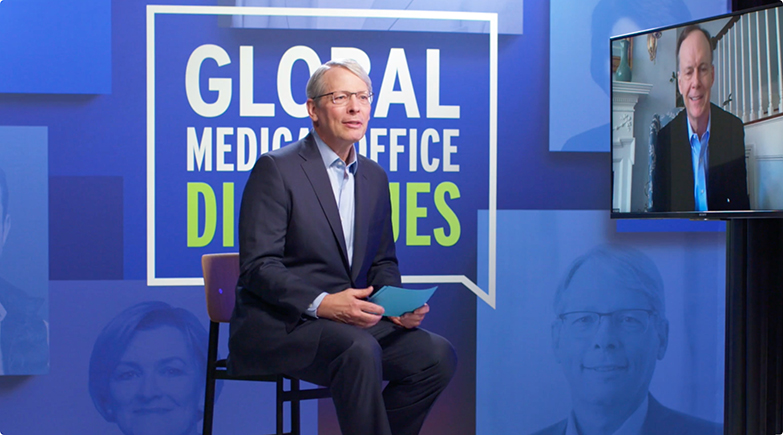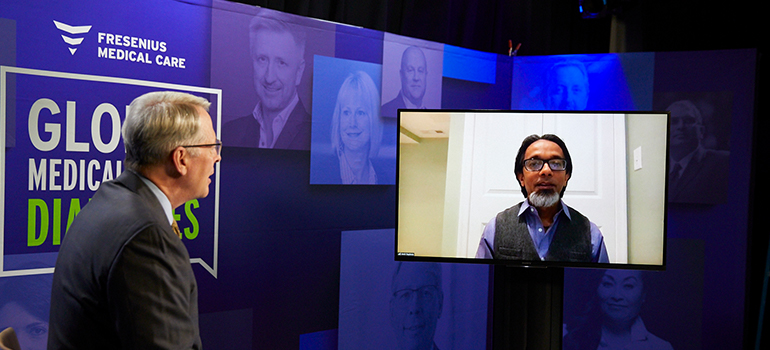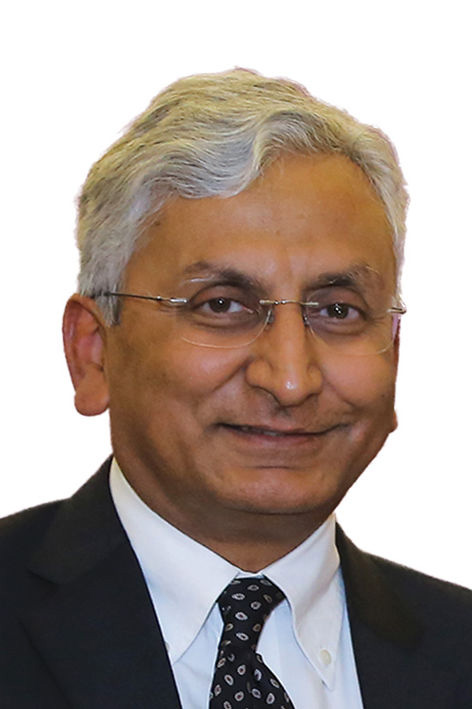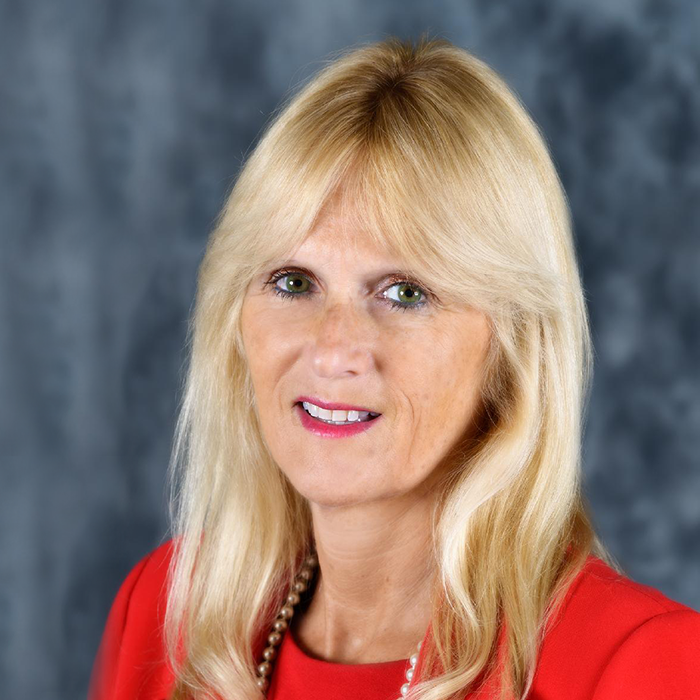Dr. Doris Fuertinger discusses the future impact of novel therapeutic interventions on populations with kidney disease.
Read More-
12 Nov 2024 Episode 53 | Predicting Population Trends in Kidney Health Using Advanced Mathematical Modeling
-
Dr. Hanjie Zhang discusses the benefits and risks of Generative AI in healthcare.
Read More -
Dr. Giovanni Strippoli discusses how the CONVINCE study results will contribute to reaching a higher level of certainty regarding the comparative efficacy of hemodiafiltration versus HD in people with end-stage kidney disease.
Read More -
Michelle Carver, Chief Nursing Officer and Senior Vice President of Nursing and Clinical Services at Fresenius Kidney Care, discusses the benefits and challenges of patients dialyzing at home.
Read More -
13 Jun 2024 Episode 49 | Biomedical Evidence Generation
Manuela Stauss-Grabo, PhD, leads the Global Biomedical Evidence Generation Team within Fresenius Medical Care’s Global Medical Office.
Read More -
Krister Cromm, Fresenius Medical Care’s Director Person-Centered Outcomes Research, discuss the company’s evolution from disease-centered to person-centered integrated trial design.
Read More -
Luca Neri, senior director of clinical advanced analytics at Fresenius Medical Care, discusses Anemia Management with AI and computational modeling.
Read More -
7 Feb 2024 Episode 38 | CONVINCE Study Results
Prof. Peter Blankestijn discusses the results of the multicenter CONVINCE Study including how the use of hemodiafiltration impacts patient morbidity and all-cause mortality as well as patient-reported outcomes.
Read More -
Anjana Harve, Fresenius Medical Care’s Chief Information Office, talks about cybersecurity and the use of health information systems to improve the quality of care for patients.
Read More -
Brigitte Schiller, Fresenius Medical Care’s senior vice president for home therapies, discusses the ecosystem and opportunities for patients to do dialysis in their own home.
Read More -
6 Feb 2024 Episode 45 | ChatGPT and AI in Healthcare
David Rhew, Microsoft’s Chief Medical Officer and Vice President of Healthcare, discusses ChatGPT’s uses in healthcare.
Read More -
6 Feb 2024 Episode 41 | AI in Healthcare
Dr. Isaac “Zak” Kohane, Chair of the Department of Biomedical Informatics at Harvard Medical School discusses the adoption of artificial intelligence and machine learning in healthcare.
Read More -
6 Dec 2023 Episode 44 | PCORI Two-Plus Study
Jochen Raimann, the director of data analytics for the Renal Research Institute, discusses the Two-Plus Study and its potential benefits for patients.
Read More -
Dr. Frank Maddux discusses the potential impact of GLP-1 Rezeptor agonists and SGLT-2 Inhibitors on chronic kidney disease care.
Read More -
3 Nov 2023 Episode 37 | APOL1 research and its impact on the African American population of renal patients
Dr. Reshma Kewalramani, CEO of Vertex Pharmaceuticals discusses the company’s research into the underlying cause of APOL1-mediated kidney disease.
Read More -
Learn how documenting patient care, allows participating providers to improve patient outcomes through care coordination.
Read More -
Dr. Laura Niklason, Founder and CEO of Humacyte, discusses this promising technology and its recent deployment as humanitarian aid for repairing vascular trauma in Ukraine.
Read More -
In this episode of GMO Dialogues, Robert Sepucha, CEO of InterWell health talks about how this legislation changed the trajectory of kidney disease care in the United States, and led to value-based care models of today.
Read More -
Dr. Len Usvyat, the Global Medical Office’s head of Clinical Advanced Analytics, talks about how real-world data generated by devices is used to improve the care of people living with kidney disease.
Read More -
-
Dr. Miriam Huntley talks about improving infectious disease diagnosis and treatment, genomic sequencing, and machine learning to solve antibiotic resistance.
Read More -
Dr. Sumit Mohan joins this episode to discuss the importance of kidney transplantation and strategies to address inequities in kidney transplantation access.
Read More -
Dr. Maria Mercedes Resk, Medical Director for Fresenius Medical Care CARICAM, discusses cardioprotection and personalizing kidney replacement therapy.
Read More -
Dr. Kirsten Johansen discusses the racial and ethnic disparities in CKD, ESRD, and the access to treatment of these conditions according to the USRDS.
Read More -
Dr. Michael Anger joins this episode to discuss how SGLT-2 inhibitors can be used earlier with kidney disease patients and improve overall patient health.
Read More -
Krister Cromm, FMCNA's Director of Patient Experience, discusses improving patient health by including patient reported outcomes in clinical trials.
Read More -
Dr. Jennifer Flythe discusses patient-related outcome measures and how they can improve the quality of kidney disease patient care.
Read More -
Dr. Felicia Speed, VP of Social Work Services at FMCNA, discusses her work to develop mental health modules for healthcare professionals since COVID-19.
Read More -
Nephrologist Kolitha Basnayake discusses how quality improvement programs must address barriers to shared hemodialysis care for the individual.
Read More -
Nephrologist Kolitha Basnayake discusses how quality improvement programs must address barriers to shared hemodialysis care for the individual.
Read More -
Dr. Nilufar Mohebbi, discusses treating metabolic acidosis in patients, which can delay the progression of chronic kidney disease.
Read More -
Race is currently one factor used in GFR equations. Nephrologist Nwamaka Eneanya wonders if its inclusion may contribute to systemic racism in medicine.
Read More -
Fresenius Medical Care developed its own ultrafiltration controller for fluid management. Dr. Lemuel Rivera Fuentes discusses this breakthrough innovation.
Read More -
Real-world evidence can complement existing research in gaining new and valuable insights that improve kidney disease care with Dr. Ficociello and Dr. Winter.
Read More -
Improving vascular access affects outcomes for people on hemodialysis. Dr. Latif discusses improving patient outcomes by addressing opportunities in vascular access.
Read More -
Dr. Hippen discusses the challenges facing global transplant and why transplantation remains a vital therapy option for people with advanced kidney disease.
Read More -
Cardiovascular disease is the number one cause of death for people with kidney disease. Learn why cardiac disease is such a problem in kidney failure patients
Read More -
Combining clinical and genetic data from patients, scientists can understand how to make a more precise diagnosis of kidney disease in individualized care.
Read More -
Frenova Renal Research is building a Genomics Registry to analyze genetic sequencing data from chronic kidney disease patients worldwide. Listen now.
Read More -
3 Nov 2023 Episode 11 | Food Is Medicine
Social determinants of health such as food insecurity, have a profound impact on people living with chronic kidney disease and other related conditions.
Read More -
Investigate the relationship between human health and climate change events that can increase the risk of kidney disease and respiratory illness.
Read More -
Metabolomic signatures can be used to deliver more personal, precise care for patients living with kidney disease.
Read More -
Dr. Matthias Rose discusses the integration of patient-reported outcomes into the CONVINCE study.
Read More -
3 Nov 2023 Episode 40 | Health Equity
Dr. Vivekanand Jha, Executive Director, of The George Institute for Global Health in India discusses health inequality and how it manifests in communities.
Read More -
3 Nov 2023 Episode 39 | Connected Health
Dr. Shelly Nash, Senior Vice President and Chief Medical Information Officer for the Global Medical Office at Fresenius Medical Care, discusses the benefits of connected health.
Read More -
In this episode of Dialogues, we continue our look at Translating Science Into Medicine by talking with Dr. Doris Fuertinger, Director of Biomathematical Modeling and Simulation at Fresenius Medical Care, and a pioneer in the concept of virtual clinical trials.
Read More -
-
-
-
-
-
-





.png)














































